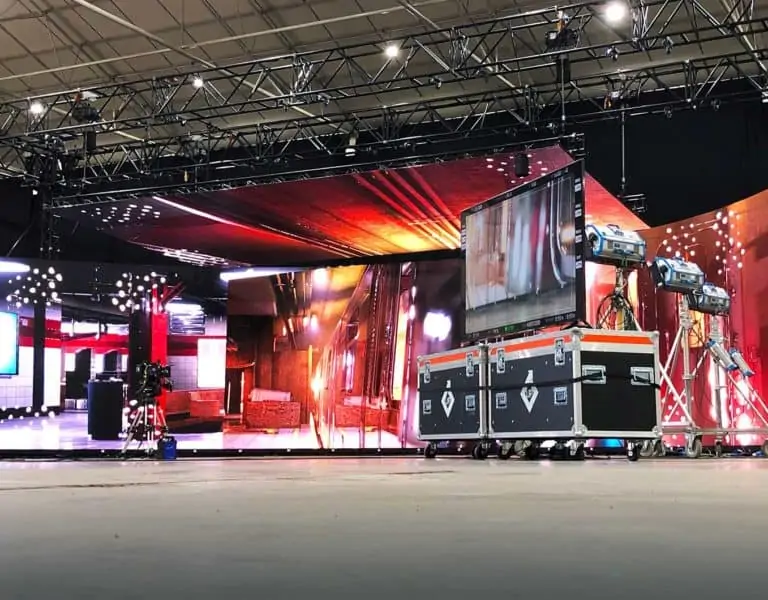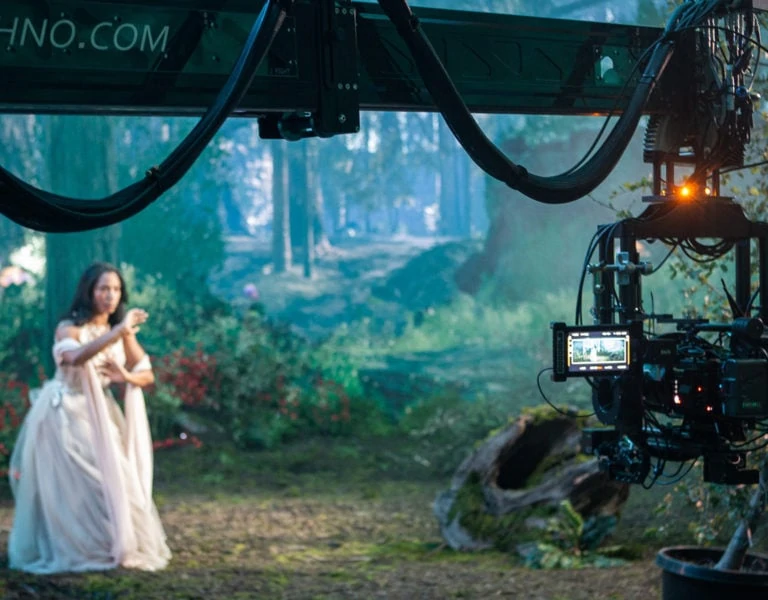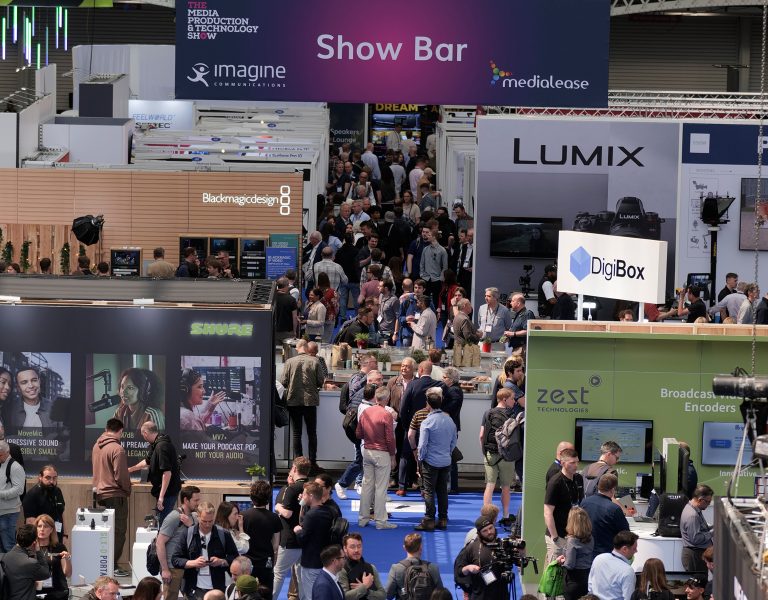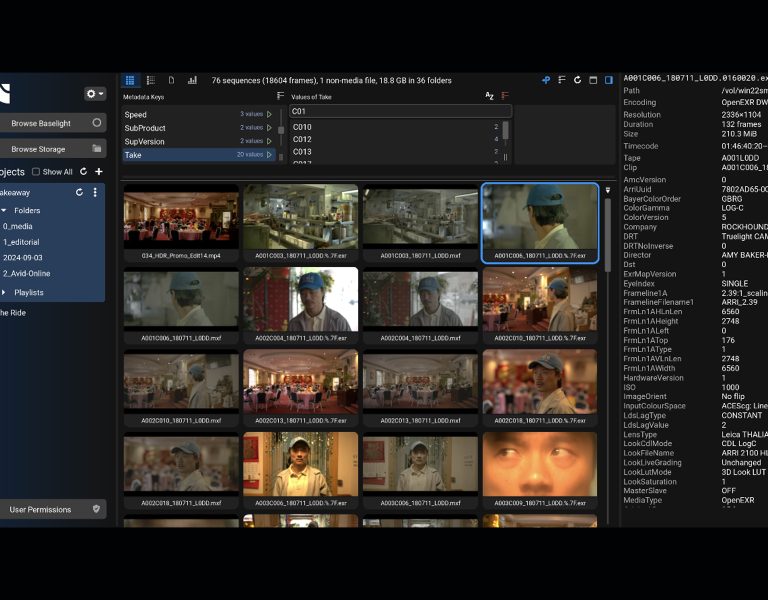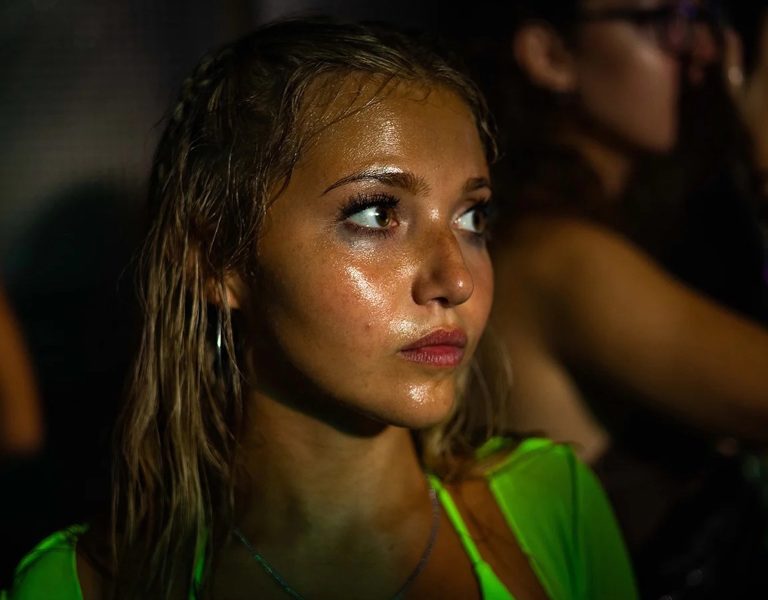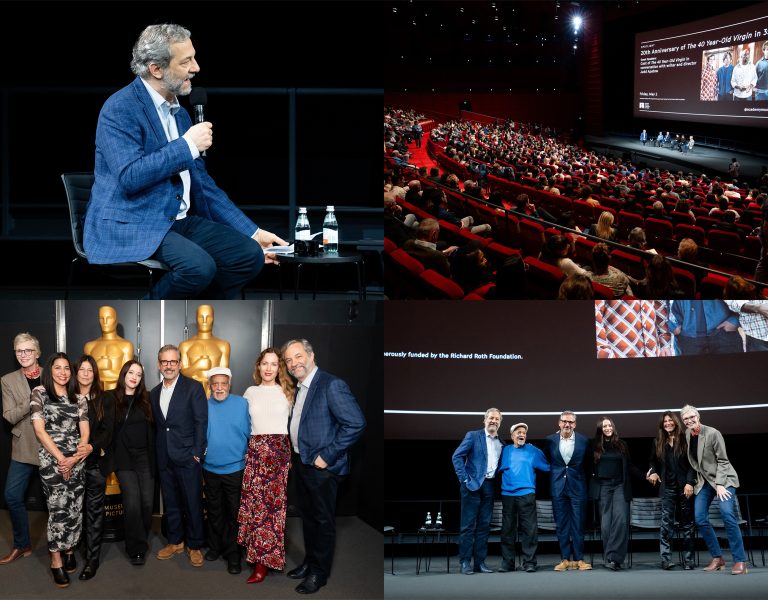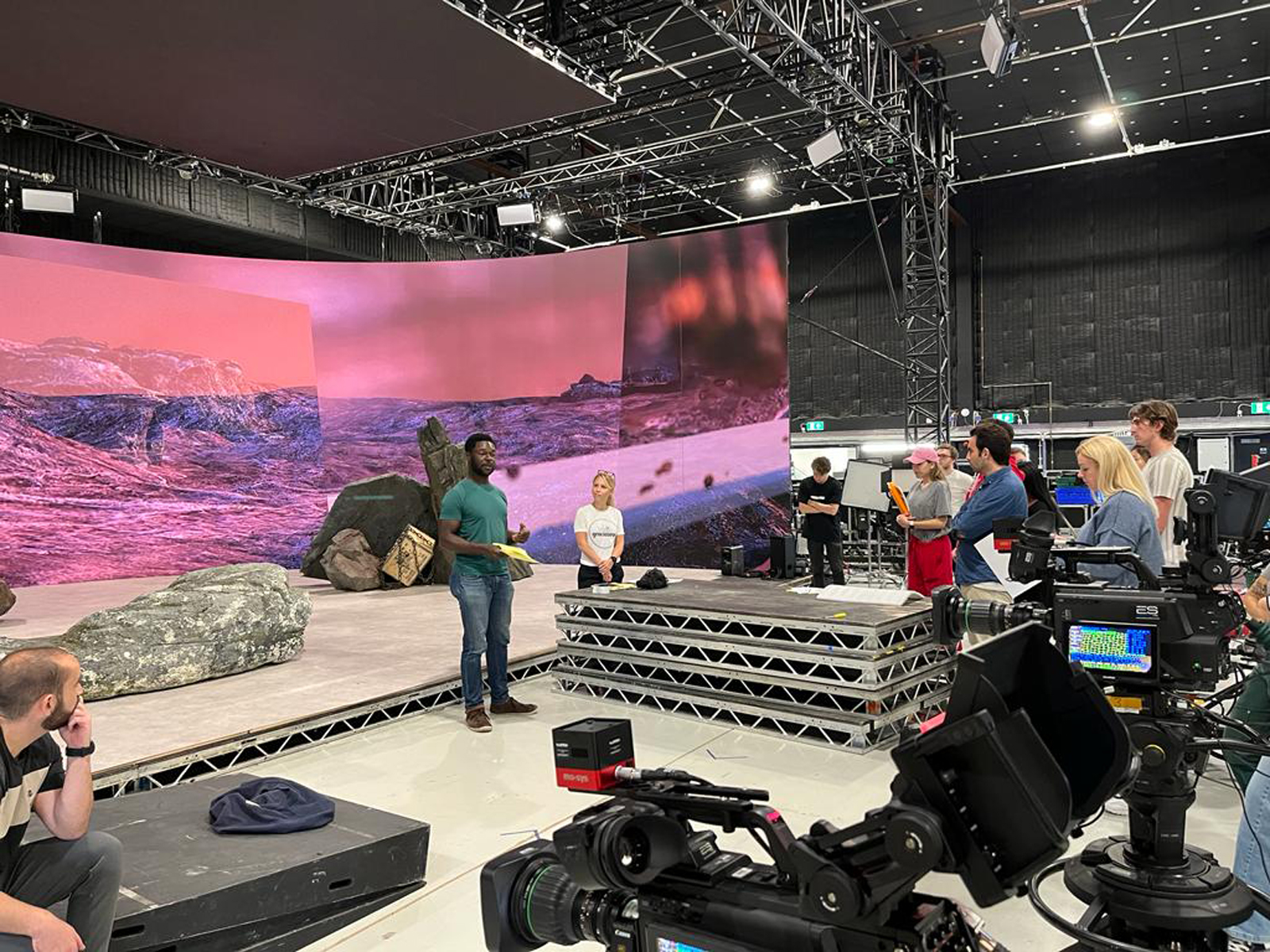
Conceived by National Film and Television School students Kathrine Vintersborg and Samuel Ofori-Attah as their swansong project ahead of graduating from the Directing and Producing and Television Entertainment MA, ‘The Ratings Game’ is an innovative TV entertainment format that integrates virtual production techniques to revolutionise viewer engagement.
This ground-breaking pilot leverages a social credit system where contestants’ every decision is scrutinised and scored by their peers, with each move, statement and action carrying a consequence within the game’s universe. The format required a full cast of contributors, meticulous production, and its own bespoke app for participating in the game.
Under the direction of Kathrine and production leadership of Samuel, the show’s development aimed to transcend traditional TV expectations with the pair envisioning a dynamic setting that could support the expansive concept of interconnected worlds.
With support from Simon Broadley, the NFTS’s head of TV Entertainment, they utilised Unreal Engine to craft diverse environments within a huge LED volume at Garden Studios in London, with key partner Shaun Wilton of Anna Valley going above and beyond to make the project happen, together making The Ratings Game a shining example of how virtual production can be used.
Of course, the production was not without its challenges. Like most entertainment shows of its kind, the format required four cameras running simultaneously, to capture multiple angles and stay across all the action unfolding in real time as the contributors debated, conversed, and voted their way through the game.
An LED volume works by each camera having its own angle of view into the virtual picture displayed on the wall, known as a frustum. When shooting with multiple cameras, these frustums often overlap, causing the cameras to capture an incomplete or inaccurate angle, which means that this kind of virtual production doesn’t naturally work in a multicam environment.
The innovation team at the NFTS teamed up with Brompton Technology and virtual production experts Disguise to conceive a first-of-its-kind multicam LED setup that used frame remapping technology with high frame rates and live camera sync to ensure that each camera was set to record only the frames showing its own frustum, avoiding overlap. Each camera therefore recorded an accurate view of the Unreal Engine worlds displayed on the stage.
During production, Kathrine’s role extended beyond typical directorial duties; she collaborated closely with a vision mixer to orchestrate the live, multi-angle shoot, mirroring conventional multi-camera operations while integrating virtual production workflows. The gallery was connected to both the studio and the Virtual Production brain bar to give a seamless directing experience behind the scenes.
Virtual production plays a significant role in the NFTS’s on-going commitment to innovation in film and television production, which includes the School’s partnership with the newly established CoSTAR National Lab, together with Royal Holloway University and Pinewood Studios, to ensure that today’s students are fully trained and equipped for tomorrow’s film and TV industries.
The School encourages students to experiment with innovative technologies and techniques wherever possible, preparing students for the evolving demands of the industry, promoting experimentation with advanced technologies and creative approaches.
Cristen Caine, R&D Producer at the NFTS, said: “Virtual production is an essential part of the landscape of film and TV production, and we are passionate about ensuring that the next generation of producers and directors is able to engage with the technologies and platforms that facilitate virtual production. In 2024 we will be undertaking new research programmes into emergent technologies relating to virtual production, such as Neural Radiance Fields (NeRF), in partnership with other organisations to keep the School at the leading edge of an ever-changing industry.”
The Ratings Game debuted as a pilot to industry members at the BFI during the NFTS annual Graduate Showcase in February 2024, illustrating the practical application of virtual production in TV formats and setting a new standard for interactive and immersive television experiences.
Applications for the Directing and Producing Television Entertainment MA are currently open for a January 2025 start.
